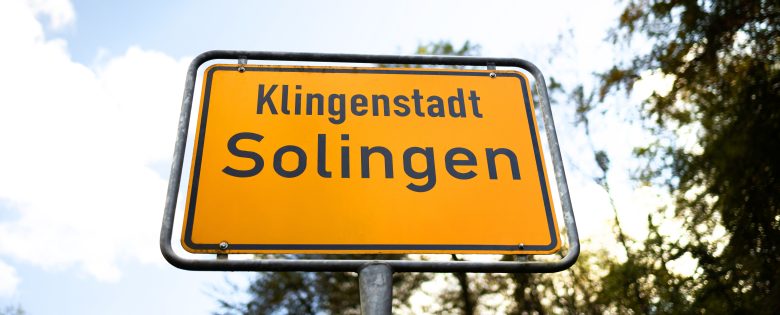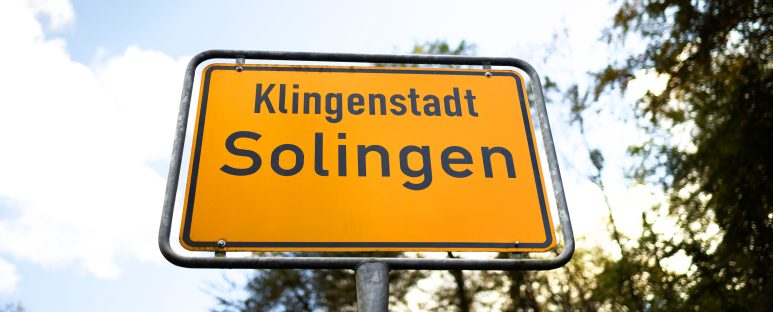This article is produced by MDI project Get the Trolls Out
Three people were killed by a man with a knife at a city festival in Solingen, North Rhine-Westphalia, Germany on August 23. Several people were seriously injured. The “Festival of Diversity” was part of the celebration of Solingen’s 650th anniversary.

What happened in Solingen?
The perpetrator was arrested by the police around 24 hours later. He is a 26-year-old refugee from Syria who was living in a refugee accommodation in Solingen. According to media reports, the perpetrator had first been in Bulgaria in 2022 before coming to Germany. He was supposed to be deported to Bulgaria, but this did not happen.
The suspect is accused of being a member of the terrorist organisation “Islamic State” (IS), which claimed responsibility for the crime just one night after the attack. The attack sparked a heated debate about migration and asylum law in Germany.
Several politicians called for stricter regulations. One week after the attack and for the first time since the Taliban took power, 28 people were deported to Afghanistan (ZDFheute). In Solingen, there were also demonstrations by right-wing extremist groups calling for the deportation of migrants.
The term ‘“knifemen” and the problem of racism in German media
After Solingen, there were further knife attacks in Germany, including in Moers, Recklinghausen and Siegen. In the previous year, the police in North Rhine-Westphalia had registered 3,536 attacks with knives in public spaces. Nevertheless, no other attack seemed to have preoccupied the public as much as the one in Solingen.

Among other things, this has to do with the framing of “knifemen” as “dangerous Muslim and Arab men”, who would not respect women and “German culture” – a framing which right-wing extremists often use.
The media coverage in Germany in the days following the attack helped to reinforce such framings. The reporting focused on refugees, particularly on refugees from Muslim and Arab countries (sometimes this is mentioned explicitly, sometimes it is more implicit). Thus, the narrative of the “dangerous Muslim refugee” became particularly widespread in the days following the attacks. A deeper journalistic contextualisation of the political demands in relation to asylum law and fundamental rights was largely absent.
On August 27, Bild-Zeitung, Germany’s best-selling tabloid newspaper, wrote about the perpetrator’s asylum file, calling it an “asylum file of shame” (“Asyl-Akte der Schande”). Two days later, a migration lawyer was targeted: “Asylum lawyer: Did she help the Solingen terrorist escape deportation?” („Asyl-Anwältin: Half sie dem Solingen-Terroristen, seiner Abschiebung zu entgehen?“).
Bild also published fear-mongering articles such as “Expert Warns of a Huge Wave of Terrorism” („Experte warnt vor einer riesigen Terrorwelle“), stirring up anti-Muslim resentments. (Bild-Zeitung is known for sensationalist reporting and is often criticised for its approach to complex issues like migration.)
The weekly magazine Focus featured a large picture of the Solingen terrorist on its front page and described Germany as a “defenseless republic” (“Die schutzlose Republik”). The magazine also used the title “knife-republic Germany” (“Messer-Republik Deutschland”).

Focus also claimed that some refugees from the refugee accommodation had offered their stories to the media in return for payment (article: Now residents of the Solingen refugee home sense big money/Jetzt wittern die Bewohner des Solinger Flüchtlingsheims das große Geld).
What could be done better?
Such heated discussions about asylum law, migration and Islam in the media can foster fear within migrant communities. German history, such as the racially motivated arson attack on a Turkish family’s house in 1993, shows that such debates can fuel racism and right-wing extremism.
Ideally, media reporting in such populist discussions and cases should remain fact-based while raising critical questions, such as: “Is Afghanistan really a safe country of origin for deportation?” “What happens to deportees?” or “Are the statements made by politicians attacking fundamental rights, and if so, what measures can be taken to protect these rights?” are important to explore.
Additionally, the perspectives of those affected by (anti-Muslim) racism should be given more attention. For example, migrants in Solingen or refugees from the same accommodation as the perpetrator could be featured. Constructive questions like “How can refugees be protected from extremism?” or “Why are more people turning to violence?” should be prioritised over framing (often Muslim) migrants as simply “criminals to be deported.”

Pictures from shutterstock.com
Disclaimer:
The views and opinions expressed in this article are solely those of the author and do not reflect the official policy or position of the Media Diversity Institute. Any question or comment should be addressed to [email protected]

